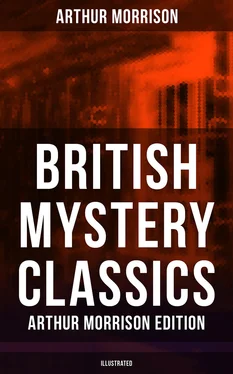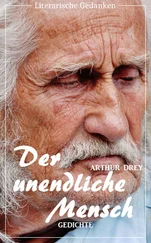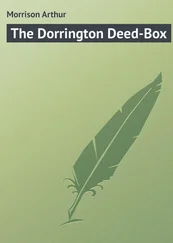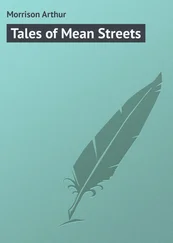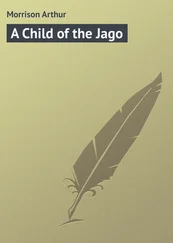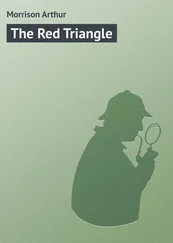“Very.”
“Ah, he was a smart man, no doubt. Well, he went to work, taking out a panel, substituting a new one, painting it over, and chopping up the old one on the quiet, getting rid of the splinters out of doors when the booty had been extracted. The decoration progressed and the little heap of diamonds grew. Finally, he came to the last panel, but found that he had used all his new panels and hadn’t one left for a substitute. It must have been at some time when it was difficult to get hold of the joiner — Bank Holiday, perhaps, or Sunday, and he was impatient. So he scraped the paint off, and went carefully over every part of the surface — experience had taught him by this that all the holes were of the same sort — and found one diamond. He took it out, refilled the hole with putty, painted the old panel and put it back. These are pieces of that old panel — the only old one of the lot.
“Nine men out of ten would have got out of the house as soon as possible after the thing was done, but he was a cool hand and stayed. That made the whole thing look a deal more genuine than if he had unaccountably cleared out as soon as he had got his room nicely decorated. I expect the original capital for those Stock Exchange operations we heard of came out of those diamonds. He stayed as long as suited him, and left when he set up housekeeping with a view to his wedding. The rest of the story is pretty plain. You guess it, of course?”
“Yes,” I said, “I think I can guess the rest, in a general sort of way — except as to one or two points.”
“It’s all plain — perfectly. See here! Challitt, in gaol, determines to get those diamonds when he comes out. To do that without being suspected it will be necessary to hire the room. But he knows that he won’t be able to do that himself, because the landlady, of course, knows him, and won’t have an ex-convict in the house. There is no help for it; he must have a confederate, and share the spoil. So he makes the acquaintance of another convict, who seems a likely man for the job, and whose sentence expires about the same time as his own. When they come out, he arranges the matter with this confederate, who is a well-mannered (and pretty well-known) housebreaker, and the latter calls at Mrs Lamb’s house to look for rooms. The very room itself happens to be to let, and of course it is taken, and Challitt (who is the invalid cousin) comes in at night muffled and unrecognizable.
“The decoration on the panel does not alarm them, because, of course, they suppose it to have been done on the old panels and over the old paint. Challitt tries the spots where diamonds were left — there are none — there is no putty even. Perhaps, think they, the panels have been shifted and interchanged in the painting, so they set to work and split them all up as we have seen, getting more desperate as they go on. Finally they realize that they are done, and clear out, leaving Mrs Lamb to mourn over their mischief.
“They know that Kingscote is the man who has forestalled them, because Gillard (or Jones), in his chat with the landlady, has heard all about him and his painting of the panels. So the next night they set off for Finchley. They get into Kingscote’s garden and watch him let Campbell out. While he is gone, Challitt quietly steps through the French window into the smoking-room, and waits for him, Gillard remaining outside.
“Kingscote returns, and Challitt accuses him of taking the stones. Kingscote is contemptuous — doesn’t care for Challitt, because he knows he is powerless, being the original thief himself; besides, knows there is no evidence, since the diamonds are sold and dispersed long ago. Challitt offers to divide the plunder with him — Kingscote laughs and tells him to go; probably threatens to throw him out, Challitt being the smaller man. Gillard, at the open window, hears this, steps in behind, and quietly knocks him on the head. The rest follows as a matter of course. They fasten the window and shutters, to exclude observation; turn over all the drawers, etc., in case the jewels are there; go to the best bedroom and try there, and so on. Failing (and possibly being disturbed after a few hours’ search by the noise of the acquisitive gardener), Gillard, with the instinct of an old thief, determines they shan’t go away with nothing, so empties Kingscote’s pockets and takes his watch and chain and so on. They go out by the front door and shut it after them. Voila tout.”
I was filled with wonder at the prompt ingenuity of the man who in these few hours of hurried inquiry could piece together so accurately all the materials of an intricate and mysterious affair such as this; but more, I wondered where and how he had collected those materials.
“There is no doubt, Hewitt,” I said, “that the accurate and minute application of what you are pleased to call your common sense has become something very like an instinct with you. What did you deduce from? You told me your conclusions from the examination of Ivy Cottage, but not how you arrived at them.”
“They didn’t leave me much material downstairs, did they? But in the bedroom, the two drawers which the thieves found locked were ransacked — opened probably with keys taken from the dead man. On the floor I saw a bent French nail; here it is. You see, it is twice bent at right angles, near the head and near the point, and there is the faint mark of the pliers that were used to bend it. It is a very usual burglars’ tool, and handy in experienced hands to open ordinary drawer locks. Therefore, I knew that a professional burglar had been at work. He had probably fiddled at the drawers with the nail first, and then had thrown it down to try the dead man’s keys.
“But I knew this professional burglar didn’t come for a burglary, from several indications. There was no attempt to take plate, the first thing a burglar looks for. Valuable clocks were left on mantelpieces, and other things that usually go in an ordinary burglary were not disturbed. Notably, it was to be observed that no doors or windows were broken, or had been forcibly opened; therefore, it was plain that the thieves had come in by the French window of the smoking-room, the only entrance left open at the last thing. Therefore, they came in, or one did, knowing that Mr Kingscote was up, and being quite willing — presumably anxious — to see him. Ordinary burglars would have waited till he had retired, and then could have got through the closed French window as easily almost as if it were open, notwithstanding the thin wooden shutters, which would never stop a burglar for more than five minutes. Being anxious to see him, they — or again, one of them — presumably knew him. That they had come to get something was plain, from the ransacking. As, in the end, they did steal his money and watch, but did not take larger valuables, it was plain that they had no bag with them — which proves not only that they had not come to burgle, for every burglar takes his bag, but that the thing they came to get was not bulky. Still, they could easily have removed plate or clocks by rolling them up in a table-cover or other wrapper, but such a bundle, carried by well — dressed men, would attract attention — therefore it was probable that they were well dressed. Do I make it clear?”
“Quite — nothing seems simpler now it is explained — that’s the way with difficult puzzles.”
“There was nothing more to be got at the house. I had already in my mind the curious coincidence that the panels at Chelsea had been broken the very night before that of the murder, and determined to look at them in any case. I got from you the name of the man who had lived in the panelled room before Kingscote, and at once remembered it (although I said nothing about it) as that of the young man who had been chloroformed for his employer’s diamonds. I keep things of that sort in my mind, you see — and, indeed, in my scrap-book. You told me yourself about his imprisonment, and there I was with what seemed now a hopeful case getting into a promising shape.
Читать дальше
